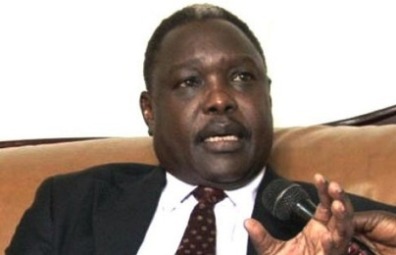South Sudan minister attributes ongoing war to corruption
June 22, 2017 (JUBA) – Bad governance, corruption and lack of accountability in public institutions was the major cause of divisions and the ongoing war in South Sudan, a senior minister said on Thursday.

He said the conflict, bad governance, corruption and nepotism caused the conflict that has killed thousands and displaced millions.
“I know all sorts of malpractices in the government have contributed negatively to the perception of the citizens and the challenges of infancy of any young country. And addressing these issues now require political will to adopt and embrace practices aimed at encouraging democratic governance to make sure all government institutions are functioning according to rules and processes”, said Lomuro.
According to the minister, all the people of South Sudan, including the church and the existing mosques, should all rise against corruption instead of pointing accusing fingers and passing the buck.
Fighting corruption, he said, was not a popular agenda, but an apparent realisation of the negative impact of corruption has promoted the fight against graft as a measure of good governance.
“We must take away the proceeds of illicit enrichment and remove negative role models in our society. I know that each arm of government has its responsibility and we must respect the separation of powers under our constitution,” said Lomuro.
“At the same time, we must have an acute and common perception of our problem and do all that is necessary to mitigate the impact of corruption in our society”, he added.
Lomuro said fighting corruption was to correct certain wrong doings.
“The aim of fighting corruption is most importantly, to remedy the dark sides of bad governance, such as poverty, unemployment, hunger and disease, as well as improving the well-being of the citizens, hence, we must pay equal attention to the economy which is the bedrock of all-round development,” stressed the minister.
“The beginning of getting leadership right is to make the electoral system transparent and credible to ensure that only the choices of the people are actually elected into electable political offices,” he added.
Meanwhile the parliamentary affairs minister, Peter Bashir Gbandi challenged public institutions to come up with clear actions plans and strategies capable of helping to resolve the leadership challenge in the country to usher in the desired development.
He, however, called on government officials and lawmakers to lead the way through effective leadership for a solid footing for the country’s citizens to see.
(ST)
